 SHANGRALA'S
SHANGRALA'S
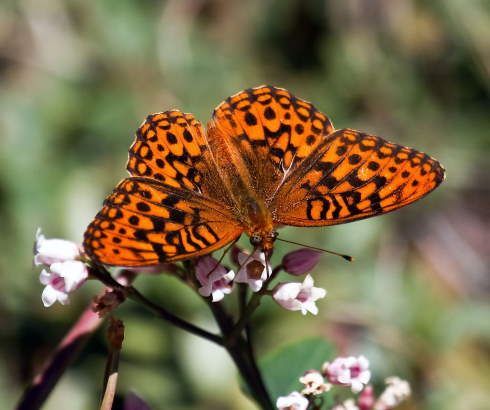
BEAUTIFUL
BUTTERFLIES 2!

Butterflies are the magicians of the natural world. They experience a complete
metamorphosis transforming from a little land lover caterpillar into a splendid
and free flying being. It's a metaphor that fills us with hope and teaches us all
things are possible with God.
Image Source
Here Are Some Very Rare And Endangered Beauties. Enjoy! :)
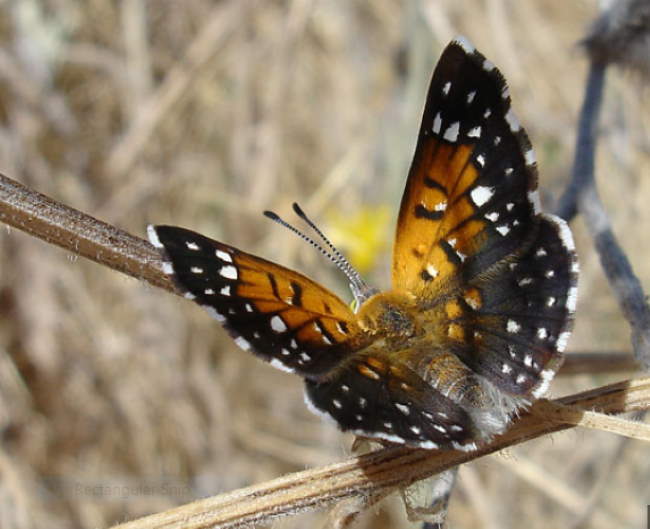
LANGE'S METALMARK
The Lange's Metalmark (Apodemia mormo langei) is currently found only
in the Antioch Sand Dunes in California. Originally discovered in 1933,
these beautiful and fragile butterflies live only on buckwheat leaves
and only in sandy areas along the southern bank of the Sacramento River.
Loss of habitat has badly disrupted their population.
Image Source
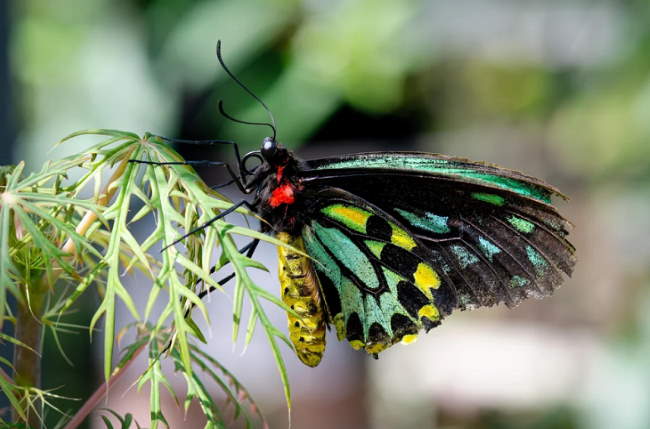
QUEEN ALEXANDRA'S BIRDWING
Boasting a wingspan of around 11 inches, the Queen Alexandra's birdwing
(Ornithoptera alexandrae) is the largest butterfly in the world. It is
found in the forests of the Oro Province in eastern Papua New Guinea
and has been a victim of habitat destruction. The species was named
after Queen Alexandra of Denmark in 1906.
Image Source
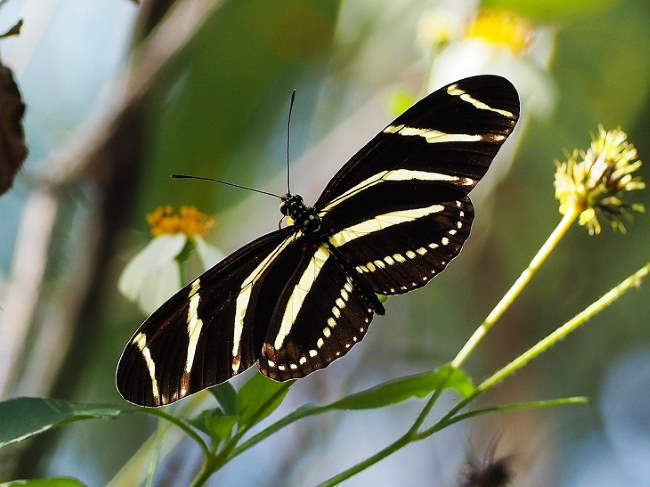
ZEBRA LONGWING
The amazing Zebra longwing (Heliconius charithonia) has long, narrow,
black wings with light yellow zebra-like stripes. It is a Neotropical
butterfly that can be found across South and Central America, Texas,
Florida, and beyond. Their distinctive stripes serve as a deterrent
to predators.
Image Source
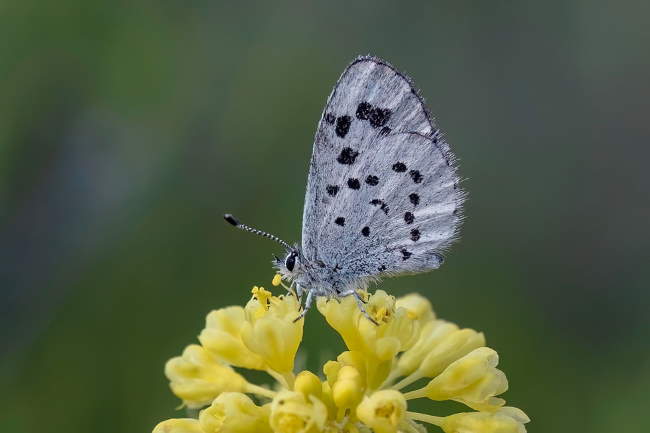
LEONA'S LITTLE BLUE
First discovered in 1995 by Leona and Harold Rice in Klamath County,
Oregon, Leona's Little Blue butterfly (Philotiella leona) eats only
buckwheat nectar and lays its eggs on buckwheat leaves. It lives only
within six square miles of Klamath County. There are currently between
1,000 and 2,000 Leona's Little Blues in this particular colony,
according to estimates.
Image Source
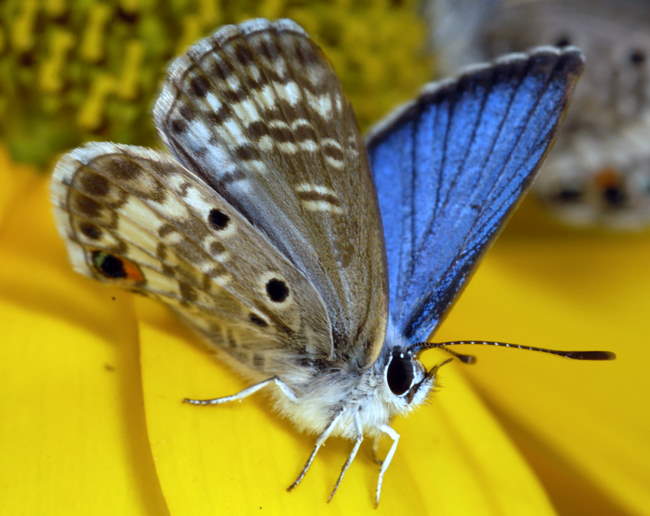
MIAMI BLUE
Native to southern Florida, the Miami blue (Cyclargus thomasi bethunebakeri)
was once quite common, but its numbers have dwindled significantly over the
years. In fact, their population was nearly wiped out completely by
Hurricane Andrew in 1992. The species was not seen again until 1999,
when a photographer discovered 35 specimens scattered throughout the
Marquesas Keys in Key West National Wildlife Refuge.
Image Source
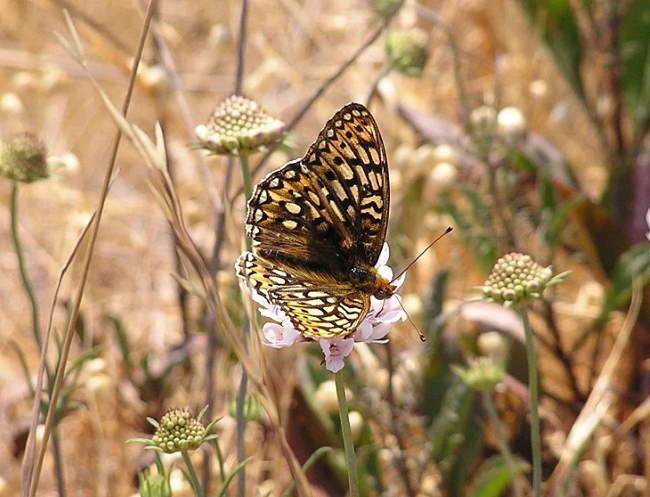
CALLIPPE SILVERSPOT
The Callippe silverspot (Speyeria callippe callippe) was once found
around the eastern, southern, and western sides of San Francisco Bay.
Unfortunately, its numbers are now limited to just seven cities,
primarily San Francisco, Oakland, and Berkeley. The population of
this medium-sized butterfly has collapsed as a result of the demise
of its sole host plant, the Johnny Jump-up.
Image Source
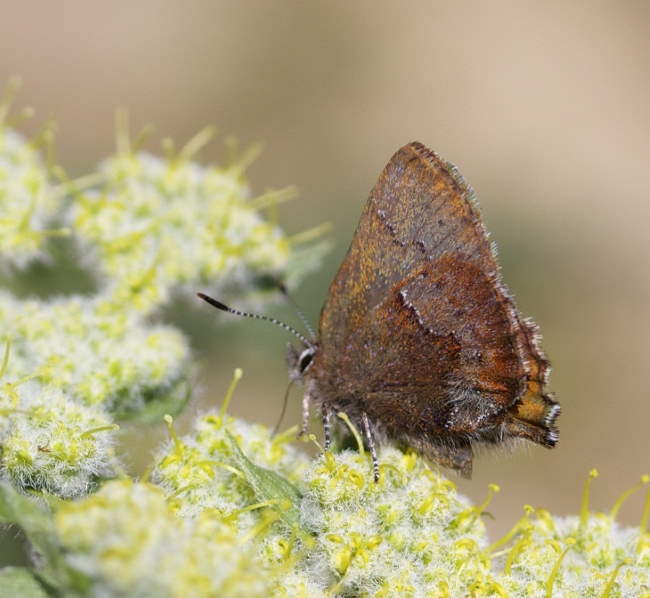
SAN BRUNO ELFIN
The San Bruno Elfin (Calophrys mossii bayensis) is an endangered butterfly
found only in three locations around San Francisco Bay, California: Milagra
Ridge (San Mateo County), San Bruno Mountain (San Mateo County), and Montara
Mountain (San Mateo County). Their population has been estimated at 1,000
or more adults in 15 subpopulations. The San Bruno elfin lives on rocky
outcrops and cliffs and feeds exclusively on the leaves of its host plant,
the broadleaf stonecrop.
Image Source
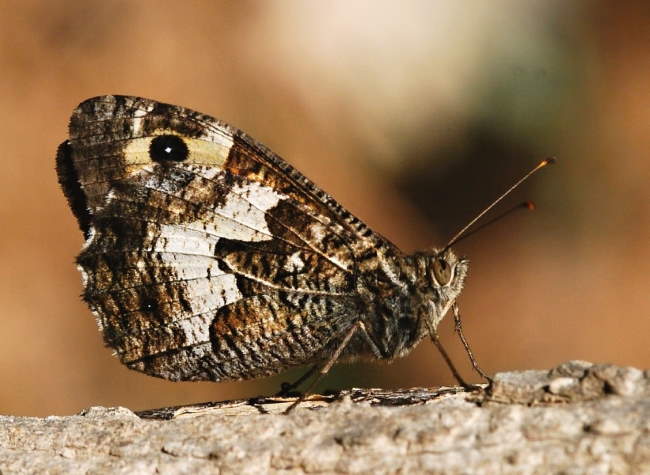
MACEDONIAN GRAYLING
The Macedonian grayling (Pseudochazara cingovskii) is a rare European
butterfly that's listed as a critically endangered species on the
IUCN Red List. Its present population is unstable and declining, with
only around 3,000 adults living in the Macedonian hamlet of Pletvar. Its
numbers have taken a hit because of quarrying in the area. Unfortunately,
five of the seven locations where Macedonian Graylings are known to
live are close to a working marble quarry.
Image Source
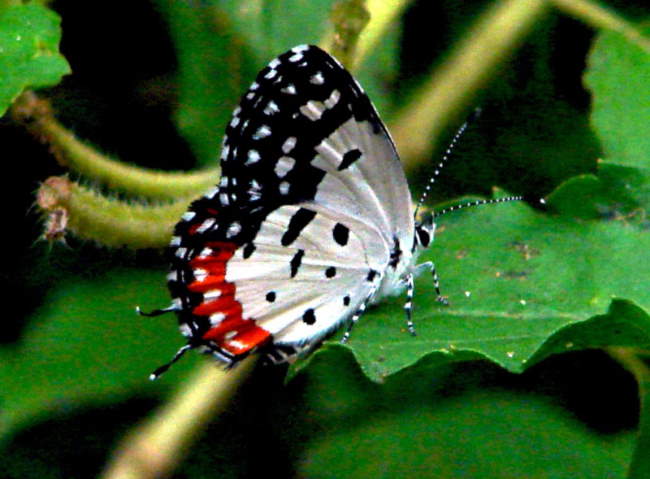
RED PIERROT
A small but striking butterfly, the Red Pierrot (Talicada nyseus) is found
in peninsular India, the hilly regions of northeast India, and northern
Myanmar. Pierrots are weak fliers and usually fly in short bursts very
close to the ground. This beautiful butterfly faces the problems of habitat
loss and climate change.
Image Source
|
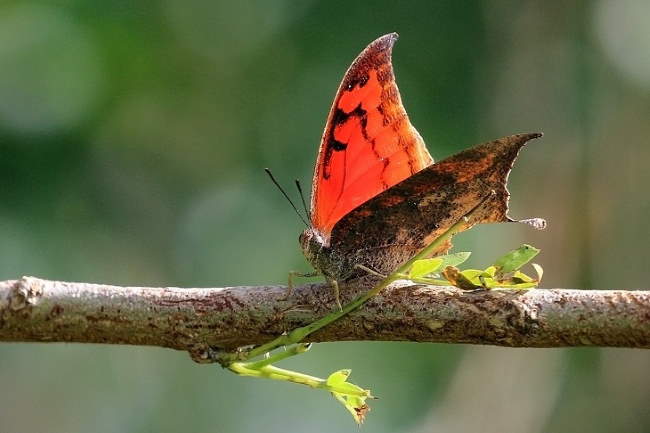
FLORIDA LEAFWING
The endangered Florida leafwing (Anaea troglodyta floridalis) is native to
the pine rockland habitat of South Florida. When at rest, the dark or gray
underside of its lower wings gives this butterfly the appearance of a dead
leaf. Leafwings were once abundant throughout Miami-Dade and Monroe counties,
but now they only inhabit Everglades National Park. The specific causes of
its population loss are unknown, but scientists assume that habitat damage,
nonnative species introduction, pesticide usage, and butterfly collection
are to blame.
Image Source
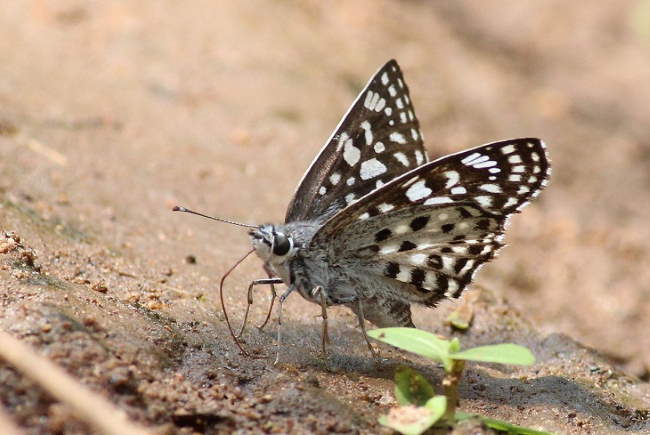
SPOTTED ANGLE
The Spotted Angle butterfly (Caprona agama) is found from southern India to
Burma and in Thailand, Laos, Vietnam, southern China, Java, and Sulawesi.
Frederic Moore (a British entomologist and artist) described the species for
the first time in 1857. The rare butterfly belongs to the family Hesperiidae.
Image Source
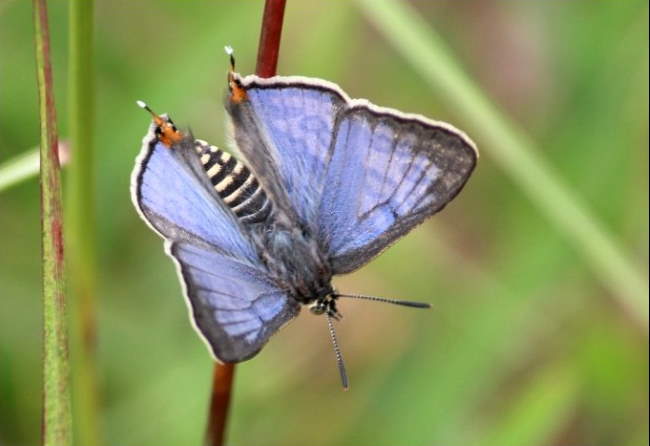
LILAC SILVERLINE
The rare Lilac Silverline (Cigaritis lilacinus) is found in India, Myanmar,
and Thailand. It was thought to have been extinct in India for over 120
years before it was rediscovered in 2012 in the Hessarghatta Lake area of
Bangalore. This species is legally protected in India under Schedule II of
the Wildlife (Protection) Act, 1972. It appears that the traversal of a
large number of vehicles indiscriminately across Hesaraghatta Lake is
destroying its host plant.
Image Source
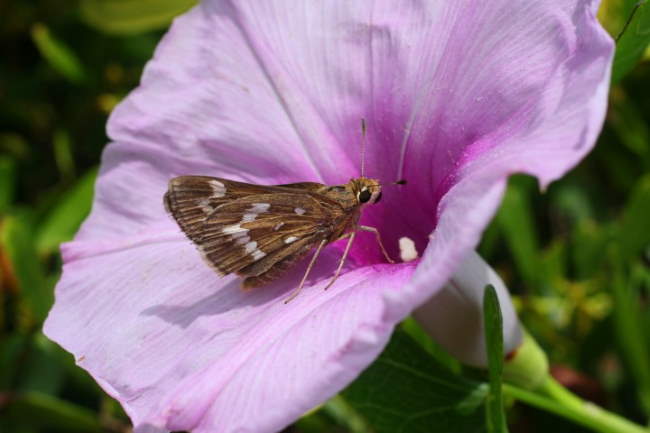
CHRYSTAL SKIPPER
Only a small portion of North Carolina's Crystal Coast, notably the area
between Fort Macon State Park and Hammocks Beach State Park, is home to
the Crystal skipper (Atrytonopsis quinteri). Initially, it was thought to
be a variation of the Loammi skipper (A. loammi), but scientists later
identified it as its own species in 2015. Researchers have said that
preserving and restoring the Crystal Skipper's host and nectar plants,
the seaside little bluestem, will be critical in ensuring their
population remains stable.
Image Source
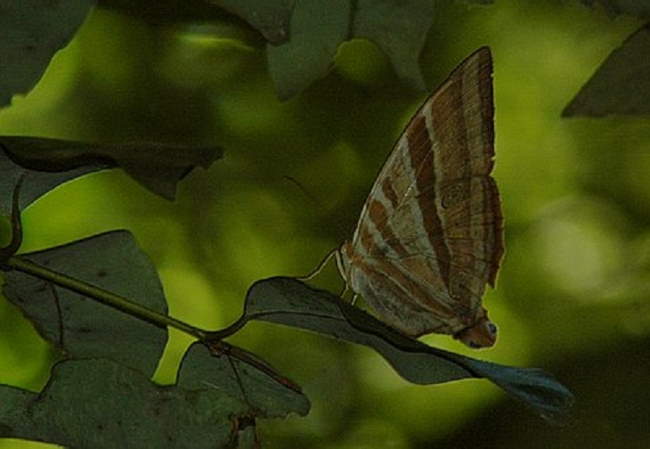
PALMKING
The rare and endangered Palmking (Amathusia phidippus), characterized by
a brown color and dark bands, can be found in India and Southeast Asia.
It was first recorded in South India by British scientist H.S. Ferguson
in 1891. Palmking belongs to the Nymphalidae subfamily and feeds on palm,
coconut, and calamus varieties of plants. Spotting this butterfly isn't
easy, as its wood color makes for easy camouflage. Moreover, it rarely
spreads its wings.
Image Source
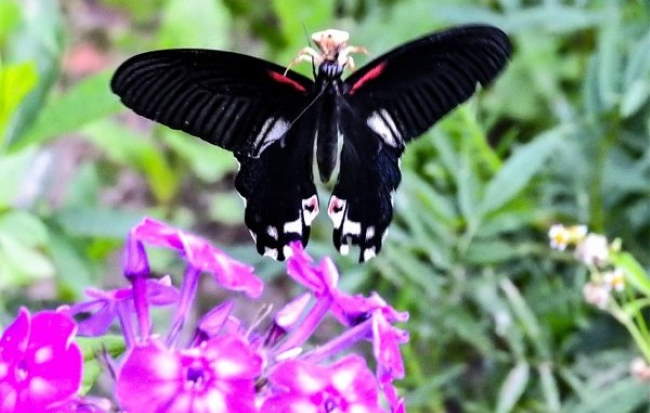
REDBREAST
The Redbreast (Papilio Alcmenor) is a species of swallowtail butterfly
found in South Asia. This rare beauty was spotted for the first time in
110 years in the western parts of the Himalayas in October 2022. It's
recognized by its bluish-black color with broad red stripes. The rare
species is legally protected in India under Schedule II of the Wildlife
(Protection) Act, 1972.
Image Source
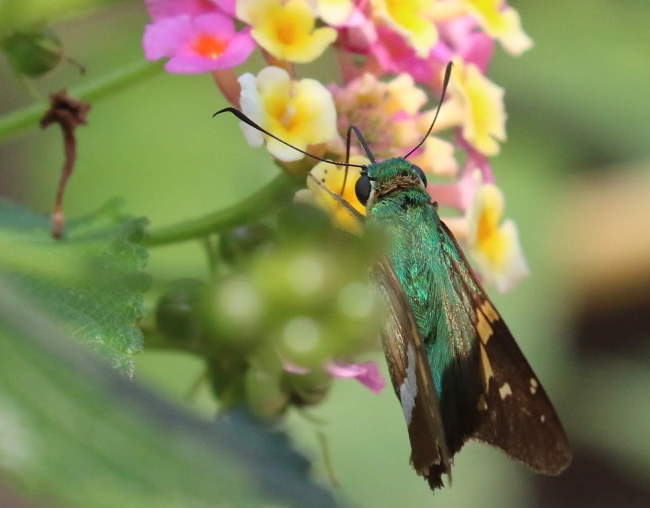
EMERALD AGUNA
The Emerald aguna (Aguna claxon) is a dicot skipper in the butterfly
family Hesperiidae. It is found in Central America, North America,
and South America. Its hindwing's underside features a silver-white
median bar, while its forewing features a white median bar. Emerald
agunas thrive in subtropical regions and feed on flower nectar.
Image Source
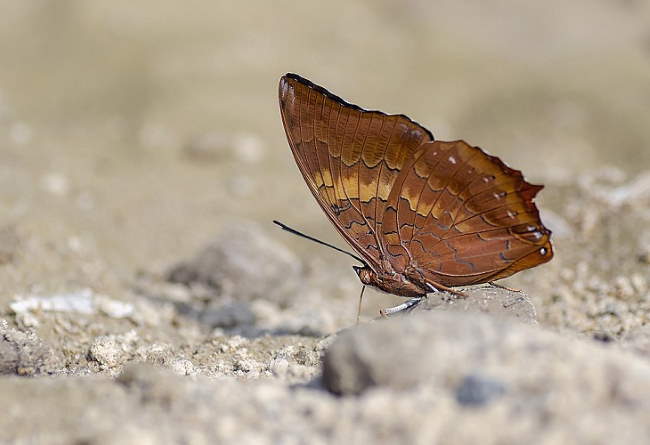
PLAIN TAWNY RAJA
A rare butterfly from the Leafwings subfamily of the Nymphalidae, the
Plain Tawny Rajah (Charaxes psaphon) is found in South India. It was
first described by John Obadiah Westwood in 1847. The plain tawny rajah
usually feeds on the fluid from rotten crabs, fish, tree sap, damp
patches, and animal dung. It's a fast-flying butterfly that travels at
all levels through the forest.
Image Source
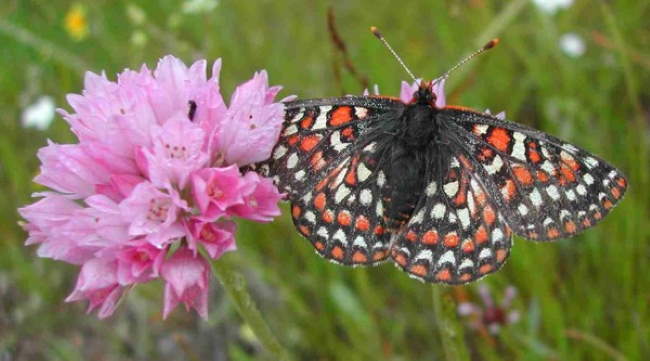
BAY CHECKERSPOT
The Bay checkerspot (Euphydryas editha bayensis) is native to the San
Francisco Bay region of California, USA. Its population size has been
extensively studied by researchers since the 1960s. Unfortunately, its
numbers have been declining at an alarming pace since the 1980s.
Scientists believe that fluctuations in the local climate have probably
resulted in the fall of the butterfly's numbers. A number of habitats
are being managed to provide protection for the bay checkerspot butterfly.
The entire population size of the Bay checkerspot has never been measured
since the number of butterflies living each year varies substantially.
Image Source
|

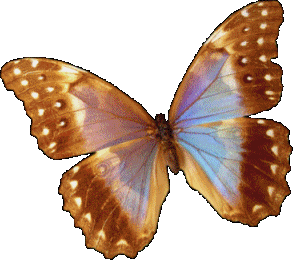
HOW TO HELP SAVE THE BUTTERFLIES:
As you can see, habitat loss is a major threat to butterflies
around the world. Find out what butterflies are native to your
region, and start growing the plants on which they like to feed
and lay their eggs. You'll be rewarded with Beautiful Butterflies
in your garden! Learn more at: Help Save Monarchs.

Be Sure To Share This. :)


SEE ALSO: Giant Silk Moths!

^BACK To TOP^

For those of you who Want More FUN - Visit The Shangy Fun List! Variety is the
spice of life! The Shangy Fun List is an ezine packed full of Poems, Inspirational and
Heart Warming Stories. Jokes from G to slightly R, and Anything else that just
might make you SMILE! Join In The Free FUN!! ... :)
Yes! Click Here To GO TO THE ARCHIVES!-


Like This Page?
If you are looking for more, here are some good places to start:

I Believe!-
In The Pink!-
Colorful Birds 3!-
Fragrant Garden!-
Butchart Gardens!-
Montreal Gardens!-
World Of Peacocks!-
Great Horned Owls!-
Magical Tiny Snails!-
Keukenhof Gardens!-
Beautiful Butterflies!-
God's Most Beautiful!-
Albino Hummingbird!-
Among The Orchids 2!-
Transparent Butterfly!-
Macro Garden Photos!-
God's Spring Paintings!-
Butterflies And Flowers!-
Beautiful Cactus Blooms!-
Beautiful Rare Flowers 2!-
Spring In The Netherlands!!-
St.Patrick's Day/Spring Index!-
A-Z Animated Picture Images!-


 -To SHANGRALA-
-To SHANGRALA-
THANKS Goes To KAREN FRANKLIN And PATRICIA HICKS For Sharing This.

Copyright © 1996 Netscape Communications Corporation. Mozilla is
a trademark of Netscape Communications Corporation.
Note: This is an Unofficial God, Jesus Christ, Family, & Cartoon Fan Site.
© All graphics representing Disney characters are copyrighted by Disney.
Likewise all other graphics & music Copyright © by their own Individual Artists.
I do not own any graphics on this site. If you do, please notify me
and I'll give
you proper credit, a link, or remove it immediately according to your wishes.
~*~ Copyright © 1997-2024 Elrhea M. Bigham ~*~
 SHANGRALA'S
SHANGRALA'S




















![]()



![]()


![]()
![]()



 -To SHANGRALA-
-To SHANGRALA-
![]()